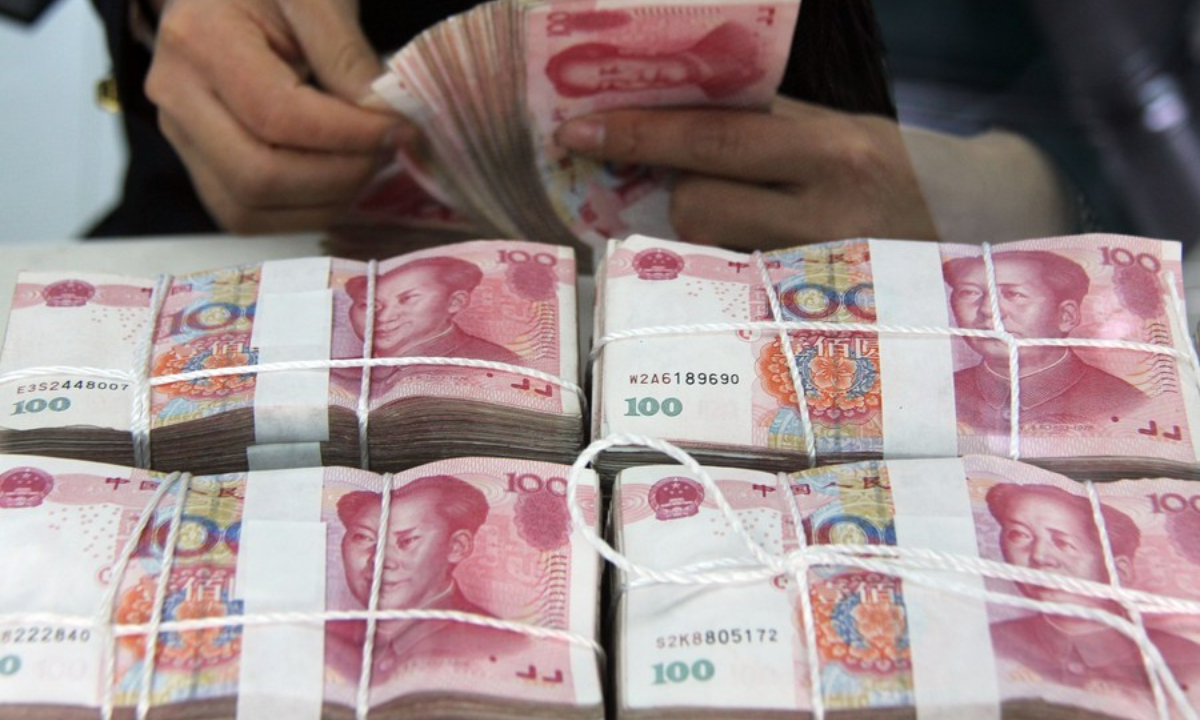
File photo shows a worker counts Chinese currency Renminbi banknotes at a bank in Tancheng County of Linyi City, east China's Shandong Province. Photo:Xinhua
Amid growing expectations of US Fed rate cuts and the resilience of China's economic fundamentals, the yuan has continued its appreciation. Experts noted on Wednesday that the appeal of yuan-denominated assets is strengthening, and as the productivity of "Made in China" improves, it is expected to offset some of the impact of currency appreciation on exports.
The yuan's central parity rate strengthened 160 pips to 7.087 against the US dollar on Wednesday, according to the China Foreign Exchange Trade System - the highest level in more than one year.
A new round of rate cuts by the US Fed is around the corner, mounting pressure on the US Dollar Index and driving the recent rise in the value of the yuan, Xi Junyang, a professor at the Shanghai University of Finance and Economics, told the Global Times on Wednesday.
The resilience of China's economic fundamentals continues to support the appreciation of the yuan. Exports are strong, with the trade surplus remaining at a high level, Xi said, noting that there's still scope for the yuan to rise.
Market analysts believe that as the interest rate gap between China and the US narrows, the return advantage of all types of yuan-denominated assets over dollar-denominated assets is becoming more apparent.
Though China's economic outlook faces challenges due to continued pressure on the real estate market in the short to medium term, there are opportunities for investing in Chinese bonds, as policies become more accommodative, coupled with the steady internationalization of the yuan and strong performance in certain economic sectors, noted Eric Liu, portfolio manager on the Asia fixed income team of AllianceBernstein.
Benefiting from relatively mild inflation and a favorable policy environment, Chinese government bonds have consistently outperformed US and European bonds over the past three and one-half years. Additionally, foreign capital has been steadily returning to China's bond market since September 2023, Liu said.
During the latest US dollar interest rate hike cycle, the yuan exchange rate remained relatively stable compared with other major currencies. At the same time, as the internationalization of the yuan continues to advance, its usage in international trade and cross-border financing has steadily increased, Xi said.
"As labor productivity continues to improve, the cost of products made in China is gradually decreasing. Meanwhile, domestic prices of the products are also on a downward trend, partially offsetting the impact of exchange rate fluctuations," Xi said.




